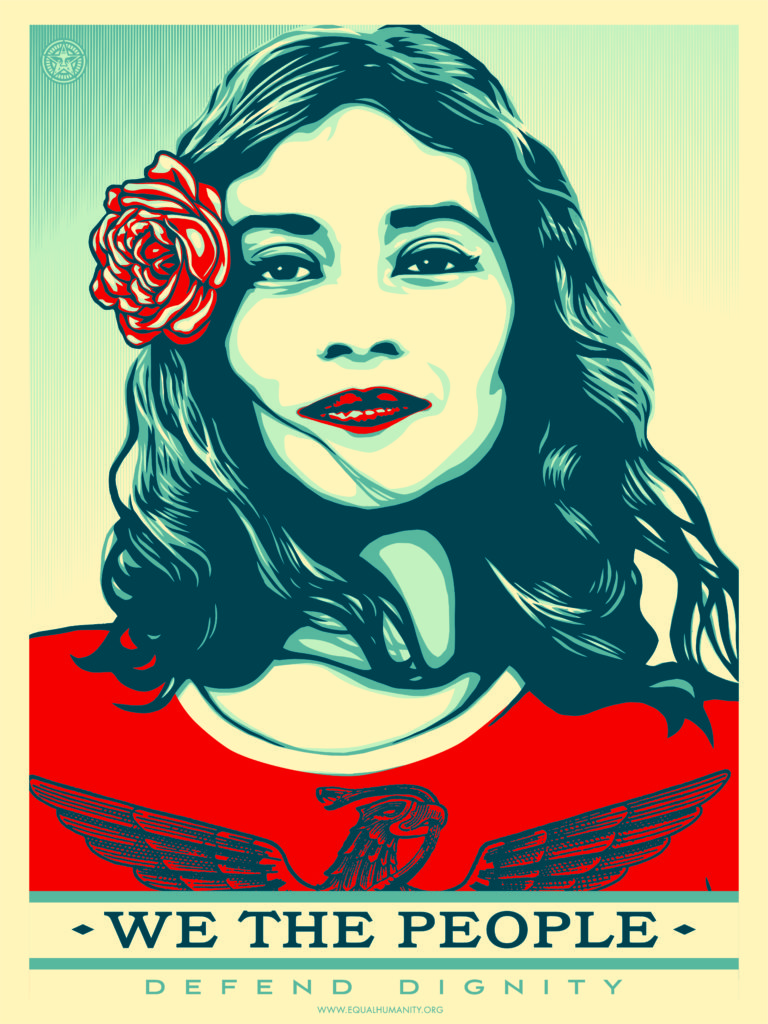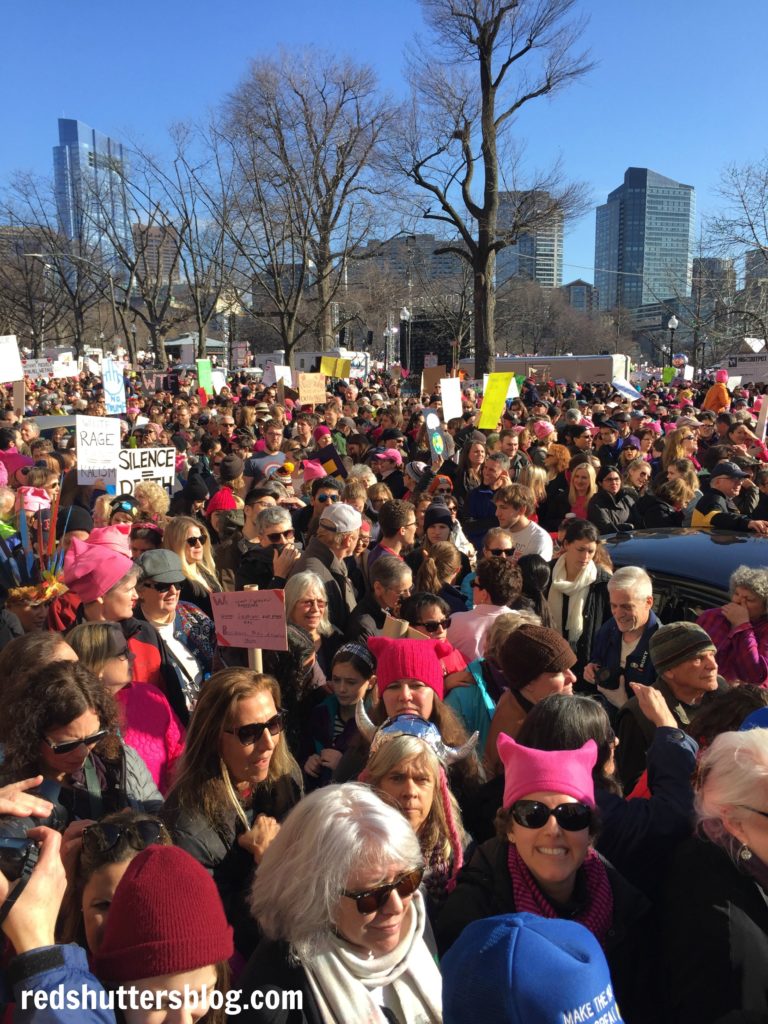On Saturday, January 21, I was one of the 3.5 million people who participated in the March for Women at sites throughout the United States and around the world. The primary March was held in Washington, DC, with “sister” marches in hundreds of locations, including Los Angeles, Austin, Tokyo, Rome, Nairobi, New York City, Amsterdam, and, my personal favorite, Antarctica.
I joined friends at the March in Boston, where I stood on the Boston Common, America’s oldest public park, to protest policies of the new presidential administration that are damaging to our country and our children’s future. If you are a longtime Red Shutters reader, you know that I don’t often write about politics—I am a quiet supporter of my beliefs—but the 2016 election changed that.
The Boston Women’s March was amazing. There was such enthusiasm, support, and community present. I saw women and men, children and seniors. I saw people of all ethnicities, babies in strollers, and people with disabilities. Fundamentally, though, I saw kindness and unity, the principles that, I strongly believe, underpin our country.
I marched because I am scared. I am scared that progress on issues—universal health care, climate change, LGBTQ rights, to name a few—that are important to us all are being dismantled or ignored by the new administration.
I marched because I am angry. I am angry that a man who disrespects women, immigrants, people of color, and the disabled won the presidential election.
I marched because I am worried. I am worried that those who are disenfranchised will continue to face discrimination, and that such treatment will only worsen in the years ahead.
I marched because I could. As a white woman from a deeply blue state (universal health care and marriage equality started here in Massachusetts), I am privileged. That privilege includes not having to face repercussions for marching and for speaking up. While I’ve experienced sexism in my life, it’s nothing compared to the racism that people of color go through each day, and it’s my responsibility—as someone who believes that we can be better than this—to be part of that change.
Finally, and perhaps most importantly, I marched for my daughter. I marched because I want her to know that her voice matters and that she should always stand up for what she believes in. I want her to understand that people are what make a democracy great—not only a president. I want her to know that there is power in connection and community that can advance change, both small and profound.
And, now all of the Marches are over. What’s next? We have to do more than march. Taking our voices to next level is the critical part. Here are 10 things you—that all of us—can do now:
1. Take action. Sign up for 10 Actions in 100 Days from the Women’s March on Washington. The organizers will email you things you can do to make a difference. Action one is to write your elected officials, and they even provide a postcard you can download. I’m putting my postcards in the mail today.
2. Run for office. Are you a woman thinking about running for office? Emerge America provides support and training to get ready for your campaign.
3. Get involved. Move On is a grassroots group that primarily focuses on nonpartisan education and advocacy on important national issues. They produce a number of petitions asking for change in Washington. Create your own petition, or sign up to learn what Move On is working on now.
4. Resist. Indivisible: A Practical Guide for Resisting the Trump Agenda has been repeatedly shared on my Facebook feed the past few weeks. It’s an explanation of how citizens can effect change in Congress, written by former Congressional staffers.
5. Support change. Live in a blue state like me and want to make change elsewhere in the US? Check out Swing Left, an organization that is working now to move Congress to a Democratic majority in the 2018 mid-term elections.
6. Donate. Donate your money or time to organizations that support your values. This was my response to the presidential election. I gave to Planned Parenthood, the ACLU, the Trevor Project, Lambda Legal, Emily’s List, and the National Resources Defense Council. Making those donations made me feel a lot better. If donating isn’t within your budget, consider donating your time. Whether it’s a national organization like the ones I’ve listed, or your religious community, local food pantry, or public schools, make being part of your community part of your life.
7. Read. Read books about people who are different than you, or issues that you need to know more about. For example, here are four reading lists to get started:
—Racism
—Feminism
—LGBTQ Issues
—Health Care in America
8. Vote. What breaks my heart more than the people who voted Trump into office is that 90 million eligible voters who didn’t cast a ballot. Ninety million! Would the outcome have been different if they had voted? Perhaps, I don’t know. I do know, though, the voting is a right and responsibility that we should take seriously. Show up, be counted, and vote.
9. Pay attention. No matter where you fall down on the political spectrum, it’s imperative that you follow the truth (not the “alternative facts”) and that you understand what’s happening in Washington, DC. Pay attention to what our elected officials are saying and doing, to the new policies and bills they are proposing, to the steps they are taking as leaders of our country. Listen closely. And, if you don’t like what you see……
10. Speak up. Write letters to the editor of the newspapers you read, share your thoughts on social media, and call your elected officials. Share what you think—both the good stuff and bad—in a respectful way that encourages dialogue and connection. This is the time to be heard.
What will you do now? Whether you marched on Saturday or not, whether you support this president or not, the beauty of a democracy like ours is the mix of perspectives and viewpoints. Our diversity is what makes America unique and strong. Let’s keep that strength going—together.
From the Women’s March on Washington…
From the Boston Women’s March…



Great post about an amazing & historic day, one that many of us will look back on and be proud to say to future generations “I was there.”
Love it!